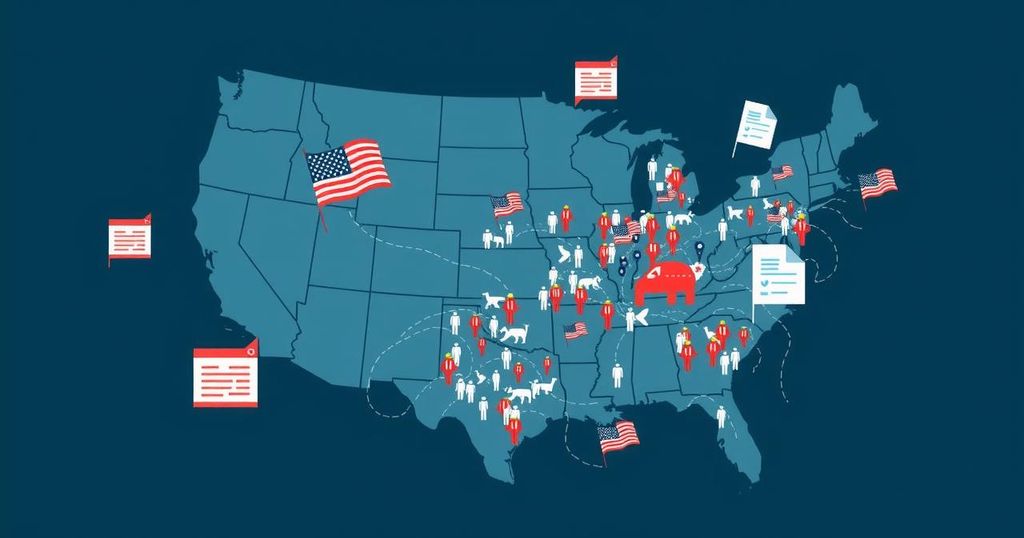Extreme Weather Disrupts Electoral Processes Worldwide in 2024 Supercycle

The 2024 Election Supercycle has seen extreme weather disrupt elections in 14 countries, with incidents ranging from storms affecting Tuvalu to heat-related deaths during India’s largest election. The Election Emergency and Crisis Monitor documents these challenges and their impacts on electoral processes, offering comprehensive country briefs and resources for stakeholders.
In the midst of the 2024 Election Supercycle, extreme weather phenomena have profoundly impacted national and subnational elections across 14 countries, including Bosnia & Herzegovina, India, Mexico, Senegal, Tuvalu, and the United States. These disruptions, often exacerbated by climate change, have affected the electoral process at several stages, notably in voter registration, campaigning, voting operations, and result announcement.
In February, an intense storm coupled with high tides postponed voting for Tuvalu’s new Prime Minister as newly elected parliament members from outer islands faced travel challenges. April witnessed extreme heat during India’s largest-ever election, resulting in tragic heat-related fatalities. Heavy rainfall in June hindered voting operations during the European Union elections in Austria, necessitating the relocation of polling stations. July’s record heatwave in Mexico caused considerable distress among voters, with some individuals abandoning the polls.
Moreover, in October, local elections had to be delayed in five municipalities in Bosnia & Herzegovina. Just weeks prior to the United States Presidential election, Hurricanes Helene and Milton caused extensive disruptions across several states, including North Carolina, claiming over 200 lives. Finally, riverine flooding impeded the electoral participation of voters and observers during Senegal’s Parliamentary elections in November.
The Election Emergency and Crisis Monitor (EECM) by International IDEA captures these electoral challenges triggered by extreme weather, spanning floods, hurricanes, heatwaves, wildfires, and more. The dashboard offers comprehensive coverage of 65 country briefs from 2001 to 2024, facilitating searches by country, year, regions, election types, and types of hazards. Each brief provides detailed insights into the disasters’ impacts, societal consequences, linkages to climate change, procedural modifications, and initiatives to maintain electoral integrity.
Additionally, the dashboard serves as a resource hub, providing a bibliography of references for further reading, equipping election stakeholders with valuable tools to better comprehend the intricate challenges posed by disasters during elections.
For further exploration, interested parties are encouraged to visit the project page and press release to delve deeper into the subject matter.
In recent years, the interplay between climate change and electoral processes has become increasingly apparent. Natural disasters have presented significant challenges, disrupting not only the logistics of elections but also the safety and participation of voters. The 2024 Election Supercycle year highlighted the extent to which extreme weather events can influence the democratic process, emphasizing the need for robust frameworks to manage such crises effectively. Through systematic monitoring and detailed analyses, organizations like International IDEA are providing critical insights into the vulnerabilities and responses related to elections amid disasters.
In conclusion, the 2024 Election Supercycle has starkly illustrated how extreme weather events can disrupt the electoral process across various countries. The incidents reported during this cycle reveal the urgent need to understand and adapt to the realities of climate change as they pertain to democratic participation and electoral integrity. The work conducted by International IDEA through the Election Emergency and Crisis Monitor is essential in equipping stakeholders with the necessary insights to navigate these challenges.
Original Source: www.idea.int







